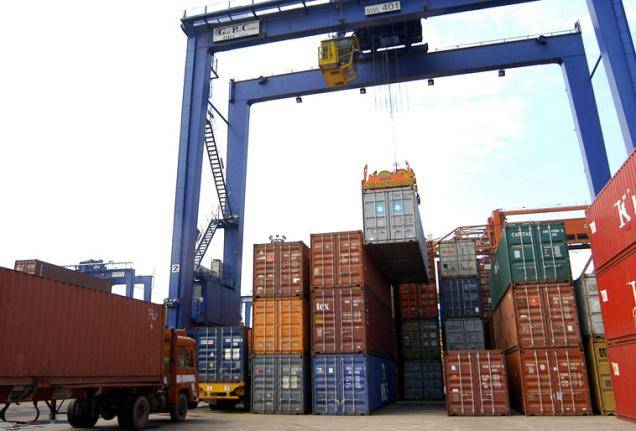The news about the economy remains contradictory as usual. Following another decline in exports in the ten months of the ongoing fiscal year (of about 13 percent), the government is likely to miss the annual exports targets set for the ongoing financial year. On Wednesday, President Mamnoon Hussain said somewhat the opposite; that economic indictors were improving, all due to the business community and its efforts to grown and export despite all odds. The latter may just be rhetoric or course, an official presenting rosy picture as usual, but the truth is that our exports are continually declining. Without a favourable balance of trade, the value of the rupee will consistently suffer, and no amount of foreign investment (read Chinese investment) can successfully and sustainably buoy our currency.
Yes, the investment climate has definitely improved because of the CPEC. It will make the GDP growth rate rise, and improve economic indicators. However, GDP is a measure of money made on our soil, it does not account for the fact that this money is being made by the nationals of another country. Caution has to be advised while looking at the figures the government is generating about growth rates. It is not that the figures are wrong, but that they often do not mean what we think they mean.
Meanwhile, the government has signed an agreement with Tajikistan to import energy. Under the CASA-1000 project, Pakistan will import electricity from Tajikistan and Kyrgyzstan via Afghanistan to minimise the country’s electricity shortage. The process of laying of power transmission line for the project is under way. Tajikistan is the world’s third largest producer of hydroelectric power after the United States and Russia. Pakistan could have been a hydroelectric power, but our lack of political consensus to build dams has led to us importing energy. Had Kalabagh dam been built, many of our energy woes would have been sorted. Hydroelectric power plants and dams take a long time to build, but once the initial investment has been made they are the most reliable and sustainable sources of energy. Hopefully the government has done its math this time, unlike the Liquefied Natural Gas (LNG) import from Qatar, which was not only expensive, but there were also issues of transport and importation of the gas.
All in all, we are importing everything, from Turkish taxis, to Chinese engineers, to Tajik electricity. The government is providing us with goods yes, but at a huge cost to the consumer and to the national exchequer. What are we selling to counter this? Cotton and mangoes do not balance oil and steel.






